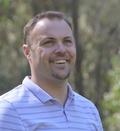Cited By
View all- Mitra SRosenhein E(2024)Agile Practices and their Role in Enhancing Productivity in Student-Run Software Development ProjectsJournal of Computing Sciences in Colleges10.5555/3665609.366561239:8(39-54)Online publication date: 17-May-2024
- Kim YLee KPark H(2022)Watcher: Cloud-Based Coding Activity Tracker for Fair Evaluation of Programming AssignmentsSensors10.3390/s2219728422:19(7284)Online publication date: 26-Sep-2022
- Heyl NBaniassad EOla OHenz MLerner B(2022)Team Harmony before, during, and after COVID-19Proceedings of the 2022 ACM SIGPLAN International Symposium on SPLASH-E10.1145/3563767.3568133(52-61)Online publication date: 29-Nov-2022
- Show More Cited By


